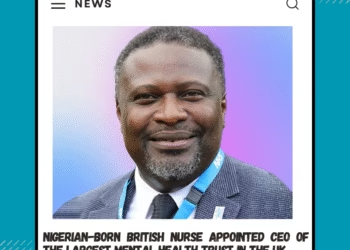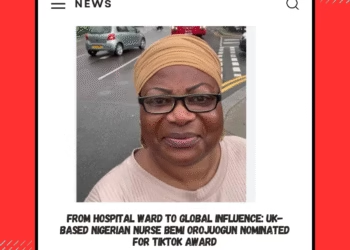Fellow Nurses Africa News, 07 August, 2025.

Nigerian Scammer ‘Michael Okafor’ Defrauds UK NHS Worker of ₦168 Million in Romance Scam
In a distressing case of romance fraud, Hyacinth Blair, a 63-year-old former NHS administrator from Lewisham, London, was deceived into stealing £80,000 (approximately ₦168 million) from the South London and Maudsley NHS Trust to send to an online romantic partner in Nigeria, identified as “Michael Okafor.” The incident, which unfolded over 18 months from June 2021 to January 2023, highlights the devastating impact of sophisticated online scams targeting vulnerable individuals.
Details of the Fraud
Blair, who had worked for the NHS trust, admitted to siphoning funds from the organization’s accounts during her tenure. She transferred the money to Okafor, whom she met through an online platform and believed to be her romantic partner. According to court proceedings at the Old Bailey, Blair initially claimed she had “no idea” why she took the money but later confessed it was sent to Okafor, who had pressured her into providing the funds. She described feeling “helpless” under his demands, despite her concerns about the legality of her actions.
The scam is a stark example of romance fraud, where perpetrators create fake online personas to build emotional connections with victims before exploiting them financially. Okafor reportedly used manipulative tactics, fabricating emergencies to extract money from Blair, a method commonly employed by romance scammers to prey on their targets’ trust and empathy.
Legal Consequences and Sentencing
Blair pleaded guilty to fraud by abuse of position at the Old Bailey. On August 7, 2025, she was sentenced to a two-year suspended prison term, narrowly avoiding incarceration. The presiding judge, Lynn Tayton KC, noted Blair’s struggles with depression and her potential for rehabilitation, ordering her to complete 250 hours of unpaid work, 15 days of rehabilitation activities, and six months of mental health treatment. The judge issued a stern warning: “You are fortunate. Be very clear, if you come back before this court, you will go to prison.”
Now unemployed and reliant on universal credit, Blair’s case underscores the personal and professional toll of falling victim to such scams. Her actions, driven by emotional manipulation, led to significant financial loss for the NHS trust and irreparable damage to her career.
The Broader Context of Romance Fraud
Romance scams have surged in the UK, with police figures reporting over £106 million lost to such frauds in the past year alone. According to the National Fraud Intelligence Bureau (NFIB), nearly 10,000 cases were recorded in the 2024/25 financial year, with victims losing an average of £11,222 each. These scams typically involve fraudsters posing as trustworthy individuals—often military personnel, doctors, or wealthy professionals—using stolen photos and fabricated backstories to build rapport before requesting money for fictitious crises.
Nigerian romance scams, in particular, have gained notoriety due to their organized nature. Informal “hustle kingdoms” in Nigeria train scammers to exploit emotional vulnerabilities, often targeting older women or those experiencing personal hardships. The case of Blair aligns with this pattern, as scammers like Okafor leverage psychological manipulation to secure financial gains, leaving victims emotionally and financially devastated.
Protecting Against Romance Scams
To safeguard against romance fraud, experts recommend vigilance and awareness of red flags, including:
- Unusual Requests for Money: Be cautious of anyone asking for funds, especially for emergencies, travel, or medical expenses, without verifiable proof.
- Inconsistent Stories: Scammers often use fake identities with conflicting details. Verify their identity through reverse image searches or video calls.
- Rapid Emotional Escalation: Fraudsters may employ “love bombing,” overwhelming victims with affection to foster dependency.
- Reluctance to Meet in Person: Persistent excuses about meeting face-to-face or providing verifiable contact details are warning signs.
Victims of romance scams are encouraged to report incidents to authorities, such as Action Fraud in the UK, and seek support from organizations like Victim Support. Recovery services may assist in retrieving lost funds, though success is not guaranteed.
Conclusion
The case of Hyacinth Blair serves as a sobering reminder of the emotional and financial devastation caused by romance scams. As fraudsters like “Michael Okafor” continue to exploit trust through sophisticated online schemes, public awareness and proactive measures are critical to preventing further victimization. By staying informed and cautious, individuals can protect themselves from the growing threat of romance fraud.











As if the reputation of Nigeria could get any worse.
Whilst not trying to play down the stupidity of this woman, who, because of the stupidity of the UK’s judicial system, has actually escaped prison, I’d be very interested to find out what actions the Nigerian Authorities themselves are taking against scammers of this type.